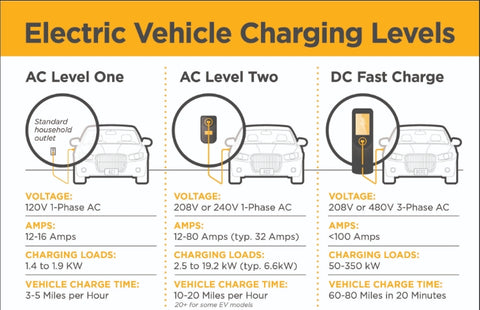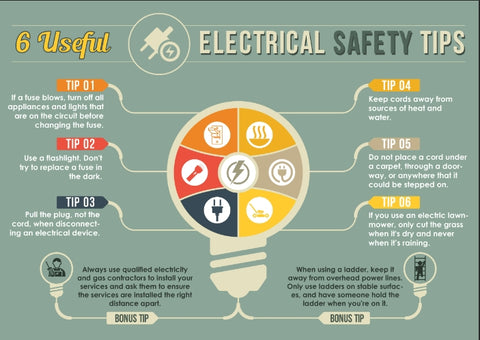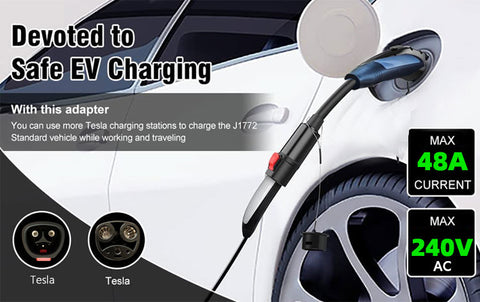As electric vehicles (EVs) continue to gain popularity, one common question that arises is whether it is safe to use extension cords for charging. While extension cords are a convenient solution for powering various devices, the high power requirements of electric vehicles introduce unique considerations. In this article, we will explore the safety aspects of using extension cords for EV charging, backed by data and expert opinions.

Understanding EV Charging Requirements
Before delving into the safety implications, it's crucial to understand the charging requirements of electric vehicles. EV charging involves transferring a significant amount of electrical power from the grid to the vehicle's battery. The power level is typically measured in kilowatts (kW) and can vary depending on the charging station and the vehicle's capabilities.
Fast-charging stations can provide power levels of 50 kW or more, while home chargers often operate at lower power levels, such as 7 kW or 22 kW. It's essential to match the charging station's power output with the EV's input capacity to ensure efficient and safe charging.
Extension Cord Safety Concerns
Extension cords, while useful for a variety of applications, introduce certain risks when used for high-power devices like EVs. The primary concerns include voltage drop, overheating, and potential fire hazards.
Voltage Drop
Extension cords have a specific wire gauge that determines their capacity to carry current over a certain distance. As the length of the extension cord increases, the voltage at the receiving end can drop. This voltage drop can lead to inefficient charging and, in some cases, may not provide enough power for the EV to charge properly.

Data from the National Fire Protection Association (NFPA) suggests that nearly 3,300 home fires originate from extension cords each year. While not all are related to EV charging, it underscores the importance of using extension cords safely.
Overheating
The high power demand during EV charging can result in increased temperatures in the extension cord, especially if it is not designed to handle the load. Overheating poses a significant risk, potentially causing damage to the cord, the EV's charging equipment, or even starting a fire.
Fire Hazards
Using extension cords that are not suitable for high-power applications can lead to electrical fires. According to the U.S. Fire Administration, electrical fires account for approximately 6.3% of all residential fires. While not all are directly related to extension cord use, the statistics emphasize the need for caution when dealing with electrical devices.
Expert Opinions and Guidelines
To gain further insight into the safety of using extension cords for EV charging, we can turn to expert opinions and industry guidelines.
Electric Vehicle Manufacturers
Most electric vehicle manufacturers explicitly advise against using extension cords for charging. The vehicle's user manual typically provides detailed instructions on the recommended charging infrastructure. Manufacturers emphasize the use of dedicated electric vehicle supply equipment (EVSE) to ensure safety and proper functionality.
National Electric Code (NEC)
The NEC, a standard for safe electrical installation in the United States, provides guidelines for using extension cords. According to NEC Article 625, extension cords are not intended for use with electric vehicle charging equipment. This reinforces the importance of following established safety standards to mitigate potential hazards.
Electrical Safety Foundation International (ESFI)
The ESFI, a non-profit organization dedicated to promoting electrical safety, highlights the risks associated with extension cord use for EV charging. They recommend installing a dedicated circuit and using a professionally installed charging station to minimize the risks of electrical fires and other safety hazards.
Safe Alternatives for EV Charging
Given the safety concerns associated with using extension cords for EV charging, it's essential to explore safer alternatives.

Dedicated Charging Stations
The most secure and efficient method for EV charging is to install a dedicated charging station, also known as electric vehicle supply equipment (EVSE). These stations are designed to handle high power levels, provide faster charging times, and adhere to safety standards.
Professional Installation
Having a qualified electrician install a dedicated circuit for your EV charging station ensures compliance with electrical codes and regulations. Professional installation minimizes the risks associated with improper wiring and helps maintain the safety of your charging infrastructure.
Conclusion
While extension cords are convenient for various applications, using them for EV charging introduces significant safety risks. Data, expert opinions, and industry guidelines emphasize the importance of dedicated charging stations and professional installations to ensure the safety and efficiency of electric vehicle charging. Prioritizing safety over convenience is crucial to prevent potential hazards and ensure a seamless and secure charging experience for electric vehicle owners.







